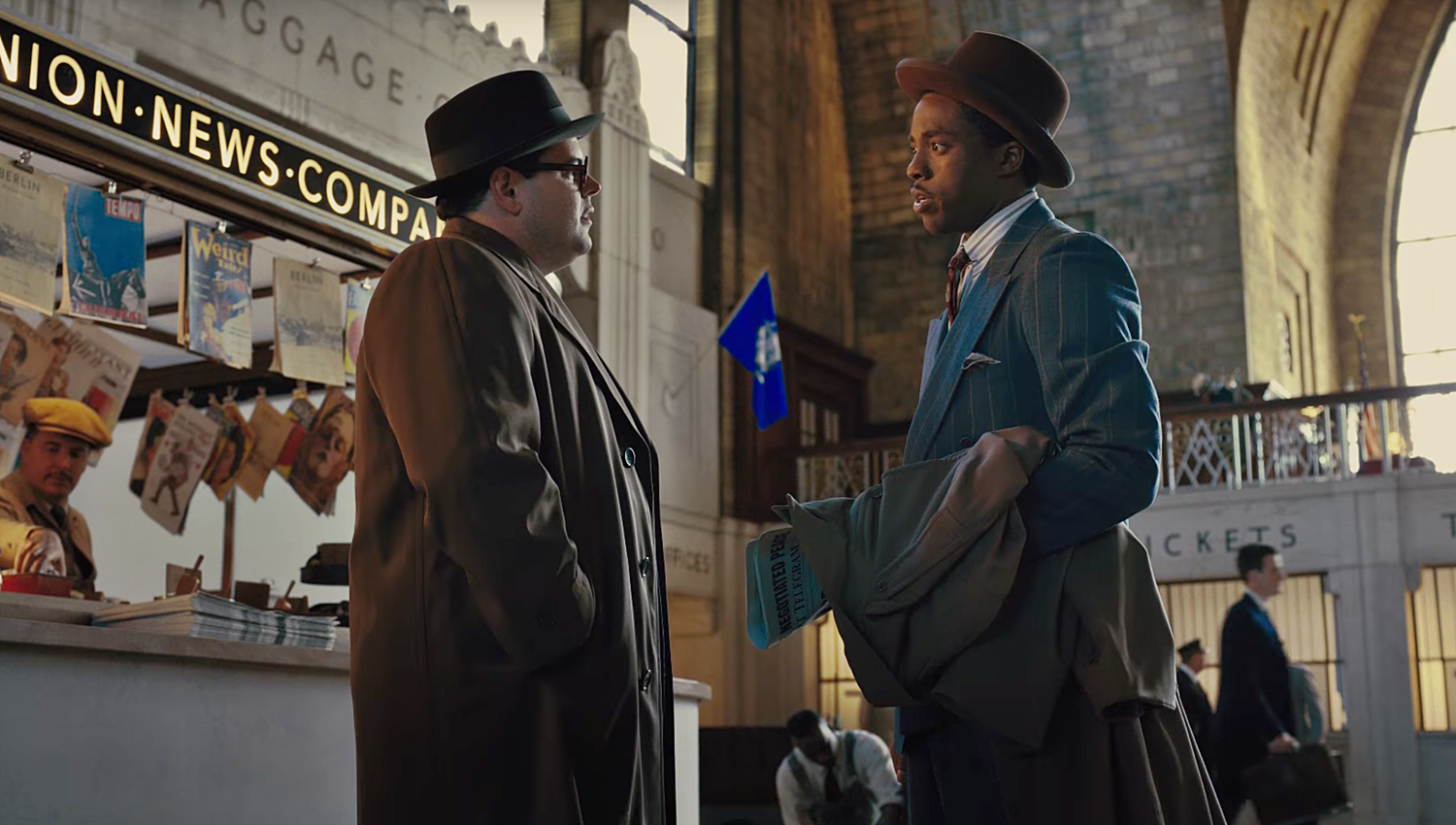
Marshall
Dustin Chase
You would think that a film titled “Marshall” would dive into who Thurgood Marshall was and his groundbreaking role in the American justice system. “Marshall” is helmed by a television director, who only returns to features films after forgotten slapstick comedies “The Ladies Man” and “House Party” from the 90’s. “Marshall” isn’t a biopic as the poster and trailer might suggest. It’s a relatively simple court case that lands as many laughs as it does dramatic moments. However, the most surprising and equally disappointing element here is the balance of screen-time given to comedic actor Josh Gad playing eventual civil rights champion Sam Friedman; Marshall’s leading council on the particular case this film focuses on. I am confused why the script and filmmakers would select this case for a movie called “Marshall”, when all the iconic character does here is remain quiet in the courtroom, gagged by the judge, while Friedman tries the case.
The opening title credits explain that Thurgood Marshall (Boseman) was the only defense lawyer working for the NAACP during the 1940’s. He is sent from his New York office to Bridgeport, Connecticut, where he is to defend a chauffeur, Joseph Spell (Brown), accused of rape and attempted murder by his female employer Eleanor Strubing (Hudson). To get the case moving forward, Marshall enlists the help of local insurance attorney Sam Friedman (Gad), who is reluctantly pushed to the forefront of the case, because Judge Foster (Cromwell), won’t allow Marshall to speak a word in his courtroom. Both men are threatened and physically abused by the locals because of Marshall’s skin color and Friedman’s religious affiliation.
This is the only Thurgood Marshall movie and it plays out like an episode of Law & Order.
Yes, the performances are fine, even Gad (the voice of Olaf in “Frozen”), finds that middle ground of dramatic comedy that Jack Black paved for actors like him years ago. Boseman already brought to life James Brown in “Get On Up” and Jackie Robinson in “42”, continues elevating projects with his presence. I just don’t understand the decision to make a film called “Marshall”, about a rather small case, in the large and impressive achievements of a life which included many Supreme Court cases and his ascension to a Supreme Court Justice. My point, is that for a younger generation, the only opportunity to have seen any portrayal of Marshall on the big screen, would have been the small role in “The People vs. Larry Flynt” (1996). Otherwise this is the only Thurgood Marshall movie and it plays out like an episode of Law & Order.
The production value is vastly non-existent, almost all scenes take place in the courtroom. Much of the plot is spoiled by the casting of Hudson (“Deepwater Horizon”), who only ever plays one type of character, and the script even breadcrumbs the audience so we already know everything she says is a lie. “Marshall” isn’t a preachy film, and props for that, it doesn’t need to be that. Audiences will walk away knowing just as much about Sam Friedman as they will Marshall. The script leans on the comedic elements when the story strays into generics, but it plays out exactly like you expect. “Marshall” doesn’t stand out as a civil rights film, a court room drama, it’s not suspenseful nor among the year’s most impressive acting performances. It’s not a cinematic event like Oscar nominated films “The Help” or “Hidden Figures”, nor is it the type of film that will cross cultures or boundaries making its way into homes across America and that’s why I am so disappointed.
Final Thought
A missed opportunity to explore who Thurgood Marshall was on the big screen for a new generation.
